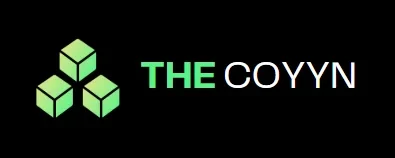Checwifeswap: A Deep Dive into the Digital Age’s Impact on Relationship Dynamics
In the landscape of modern digital culture, new trends, subcultures, and ideas frequently emerge, challenging long-standing societal norms. One such term that has been gaining attention recently is checwifeswap. Though it may initially sound like a niche or unconventional keyword, its implications touch on broader issues related to relationships, privacy, consent, and the ever-evolving role of digital platforms in shaping how we engage with each other.
To understand checwifeswap, it’s important to first explore the origin of the term, its connection to traditional practices like wife swapping, its ethical concerns, and the cultural ramifications of its presence in the digital sphere.
The Origins of Checwifeswap
The term checwifeswap appears to be a specific variant of the broader practice of “wife swapping” or “open relationships,” where partners agree to exchange or share their intimate connections with others, usually in a consensual manner. Traditional wife swapping, while controversial, has existed in various forms for decades and is often discussed in the context of consensual non-monogamy or polyamorous relationships.
However, checwifeswap seems to have emerged in more recent years as a digital phenomenon, likely born out of the intersection between adult entertainment, digital content creation, and the world of social media. While it maintains the core principle of swapping relationships or partners, checwifeswap appears to encompass more elements of digital voyeurism, role-playing, and content sharing that takes place online.
The blending of the traditional concept of wife swapping with digital media platforms has created new, sometimes blurred boundaries for how intimacy, privacy, and consent are viewed in the digital age. Rather than merely being an offline, in-person exchange, checwifeswap has found a new life in the world of video streaming, social media, and online content creation. It is no longer just about physical exchanges but often involves the sharing of intimate moments or experiences digitally, allowing others to observe or even participate in some form.
Digital Culture and Its Influence on Relationship Dynamics
As internet culture continues to evolve, it’s clear that traditional notions of relationships and privacy are shifting. Social media, live-streaming platforms, and user-generated content have significantly impacted how people view and engage in relationships. In this age of oversharing and digital intimacy, it is no surprise that checwifeswap has become part of the conversation.
People today are increasingly more comfortable sharing personal details of their lives with the world, often without the traditional boundaries that once existed. Couples, individuals, and even entire families may openly document their experiences on platforms like Instagram, TikTok, or YouTube, sharing everything from mundane daily activities to the most intimate moments. In this environment, the line between private and public life is increasingly difficult to maintain.
For some, this public sharing of personal experiences is empowering. Couples may see the digital world as a way to explore new aspects of their sexuality, identity, or relationships in a safe and controlled environment. The advent of adult websites and social media platforms designed for explicit content has created spaces where participants can openly explore and share sexual experiences without fear of judgment or ostracism.
However, for others, this blurring of public and private spheres comes with significant risks. While it’s easy to see the appeal of exploring new sexual dynamics or relationships in a digital setting, it also exposes participants to the dangers of privacy breaches, public humiliation, and the potential for exploitation.
Ethical Implications and Consent
One of the most important aspects of checwifeswap and similar phenomena is the question of consent. In a world where digital content is so easily shared and consumed, questions about consent, privacy, and control are more critical than ever before.
For those participating in checwifeswap, the issue of consent is paramount. In many instances, the practice involves the exchange of not only physical partners but also intimate digital content that can be shared publicly or within a closed community. This content may include explicit videos, photos, or live-streamed encounters. While this might seem like an empowering experience for some, it also comes with a great deal of responsibility.
In the digital realm, consent must go beyond a one-time agreement. Given the permanence and virality of online content, it’s crucial for all parties involved to maintain strict control over how and where their content is distributed. Unauthorized distribution or leaks can result in severe consequences for those who were unaware of the extent to which their content could be shared. In some cases, this can lead to exploitation, blackmail, and irreversible damage to personal reputations.
The ethical challenges surrounding checwifeswap are also tied to the idea of transparency. While most participants in consensual exchanges understand the risks involved, there are concerns about individuals being coerced or manipulated into participating in such arrangements. The existence of power imbalances in relationships, combined with the ability for individuals to easily exploit the anonymity of the internet, raises red flags about the ethics of such practices.
The Psychological and Social Impact of Checwifeswap
The growing visibility of checwifeswap and similar digital trends has prompted psychologists, sociologists, and ethicists to explore its effects on mental health and relationships. While some argue that exploring one’s sexuality in a safe, consensual manner can lead to positive outcomes—such as increased self-confidence and stronger connections between partners—others caution that the practice may also bring about harmful psychological consequences.
One of the most prominent concerns is the potential for jealousy, insecurity, and emotional distress that can arise from sharing intimate experiences with others, whether digitally or in person. In many cases, relationships that are built on trust and emotional connection can be strained when one partner feels left out, unappreciated, or threatened by the external involvement of others.
Additionally, the notion of publicizing intimate moments or engaging in role-playing scenarios online can blur the lines between fantasy and reality, potentially fostering unrealistic expectations about relationships. The pressure to maintain an online persona, perform sexual acts for an audience, or share private details of one’s life can lead to emotional burnout, dissatisfaction, or even the breakdown of relationships.
Another issue is the potential for the normalization of behaviors that can be harmful to individuals or relationships in the long term. While checwifeswap may seem harmless to some, others may find it challenging to maintain a sense of privacy and control over their personal lives in an increasingly digital world. In some cases, individuals may start to equate their value with the validation they receive online, leading to unhealthy patterns of seeking external approval at the expense of internal well-being.
Legal and Privacy Concerns
As checwifeswap continues to spread, the legal landscape surrounding consent, privacy, and digital content becomes more complex. In many countries, the unauthorized distribution of intimate content, such as explicit videos or photos, is considered a serious violation of privacy and can lead to legal action, including civil lawsuits or criminal charges.
However, enforcing these laws in the digital realm presents unique challenges. The internet’s global nature makes it difficult to regulate content across different jurisdictions, and the ease with which content can be shared—whether through social media, file-sharing services, or private forums—complicates the situation. This lack of regulation raises important questions about how to protect individuals who are involved in practices like checwifeswap and how to hold offenders accountable for violating consent or privacy rights.
The increasing use of deepfake technology, which allows for the creation of hyper-realistic fake videos, has also raised alarm bells in relation to digital content manipulation. The creation and distribution of deepfakes—especially in sexually explicit contexts—can lead to severe consequences for individuals whose likenesses are used without permission. This underscores the need for stronger laws that protect individuals’ rights in the digital age.
The Future of Checwifeswap and Relationship Dynamics
As technology continues to evolve, the dynamics of relationships, sexuality, and privacy will only become more complicated. Platforms that encourage open sexual expression and the sharing of intimate experiences will likely continue to grow, and trends like checwifeswap may evolve in ways that we cannot yet fully predict.
Whether or not this phenomenon becomes mainstream or remains a niche online subculture, it’s clear that the intersection of digital culture and human relationships is an area that requires careful thought, ethical consideration, and ongoing conversation. The practice of checwifeswap is not just a passing trend—it is a reflection of deeper cultural shifts around sexuality, consent, and the blending of digital and real-world experiences.
Read also: Exploring Elevonoutdoorsuppliesshop.shop LinkedIn: Your Go-To Hub for Outdoor Supplies and Adventure Insights
Conclusion
The rise of checwifeswap offers a fascinating lens through which to examine the complexities of modern relationships in the digital age. Whether seen as a harmless exploration of freedom or a risky and ethically ambiguous practice, it raises critical questions about privacy, consent, and the effects of publicizing intimate moments. As society continues to grapple with these issues, it’s important to ensure that all parties involved have a clear understanding of the potential risks and rewards, as well as the ethical responsibilities that come with engaging in such practices. In the end, how we navigate the intersection of technology and relationships will shape the future of human connection in a digitally dominated world.







